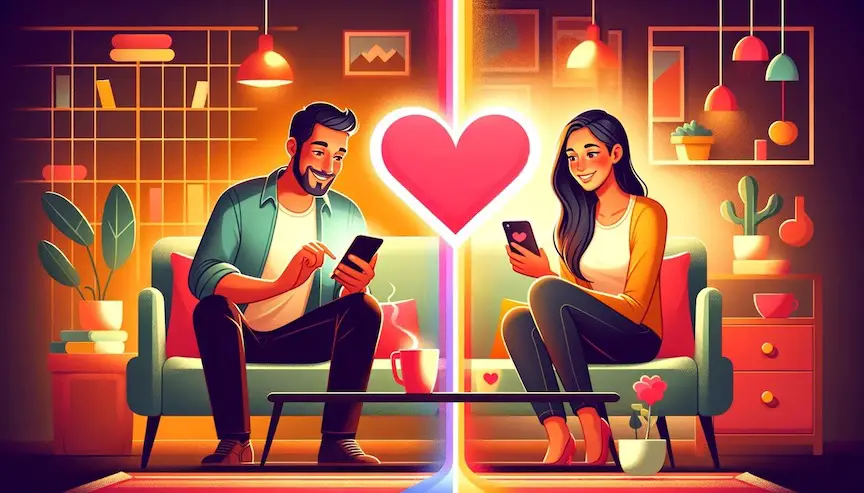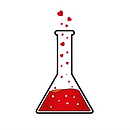How Dating Apps Are Transforming Romantic Connections and the Psychology Behind Them

User Engagement and Relationship Outcomes
Dating apps have become integral to modern romantic connections, with millions of users globally. A significant percentage of users report positive changes in their relationships after using these platforms. Specifically, 70% of users reported improved romantic relationships after just one month of app usage, including a decrease in perceived negative relationship qualities and an increase in relationship satisfaction and dedication. These statistics align with findings from various studies indicating that engaging with these apps can enhance users’ relational dynamics.
User satisfaction with these dating platforms is also remarkably high. 93% of users found the apps enjoyable, and 74% deemed them easy to use. These high engagement rates suggest that users are likely to remain active on these platforms. This continued use is beneficial, as data shows that couples who complete more daily prompts experience stronger gains in their relationship quality. This emphasizes the importance of regular interaction with app features designed to enhance relationships.
Another notable finding is that 80% of users reported improved well-being, including higher vitality and a better quality of life, after using the app for a month. This statistic underscores the psychological benefits of these platforms, suggesting a positive feedback loop where improved relational satisfaction contributes to overall well-being.
Patterns of Usage and Demographic Insights
Dating apps are utilized by people across various demographics without significant differences in usage patterns. This wide-ranging adoption illustrates the universal appeal of these platforms. Additionally, these apps have facilitated the formation of approximately 15 million new romantic or sexual relationships in the U.S. each year.
However, dating apps also amplify existing issues in traditional dating scenarios. For instance, initial attraction on these platforms tends to be surface-level, driven by profile photos and brief bios, which can lead to overwhelming choices and high rejection rates. Despite this, the consistency in user engagement and the formation of new relationships signifies the role these apps play in romantic connections.
Mental health factors also reveal interesting insights about dating app users. Individuals struggling with conditions such as anxiety and depression are more likely to use these apps but are also less likely to initiate contact with matches. Researchers found that users of swipe-based dating apps reported higher levels of anxiety, depression, and emotional distress compared to those who did not use these apps. These findings raise questions about the psychological toll of such platforms and suggest a need for features that support mental well-being.
Research shows an interplay between social anxiety, loneliness, and compulsive dating app use. Users with heightened social anxiety may turn to these platforms as a coping mechanism, potentially creating a loop of engagement driven by underlying psychological states.
Design Considerations and Psychological Impact
Given the psychological implications of dating app usage, design considerations are crucial. Dating apps can incorporate features that encourage more mindful use. For instance, reminders to take breaks or reflect on one’s behavior can mitigate compulsive usage patterns. Such interventions aim to balance user engagement with mental well-being.
Another important consideration is the happiness reported by users in their relationships. About 80% of study participants saw their relationships become happier over a month of app use. This improvement translated into a notable decrease in perceived negative relationship qualities and an increase in relationship satisfaction and dedication.
Contemporary relationship formats vary widely, encompassing committed relationships, casual dating, and being a sugar baby. This diversity underscores the comprehensive role dating apps play in various forms of romantic and sexual connections.
Furthermore, the widespread usage of dating apps signifies a shift in how people form relationships. Dating apps have become the mechanism through which most modern couples meet, surpassing traditional methods. However, despite their prominence, the psychological toll of these apps cannot be ignored. Researchers have highlighted the need to design dating platforms that promote positive psychological outcomes while minimizing adverse effects.
For instance, regular prompts that encourage reflection on user behavior and emotional states could improve overall well-being. Moreover, tailored notifications that recognize signs of compulsive use and suggest breaks might help mitigate the emotional distress associated with excessive use. These interventions could create a more sustainable and psychologically healthy environment for users.
In conclusion, dating apps significantly impact modern romantic connections and the users’ psychological well-being. While they offer numerous benefits, such as improved relationship quality and increased well-being, they also present challenges related to mental health and user engagement patterns. By addressing these issues through thoughtful design and user-centric features, dating apps can continue to play a pivotal role in forming and maintaining romantic connections.

